Why Is Your Cat So Clingy After Giving Birth? (The Honest Truth)
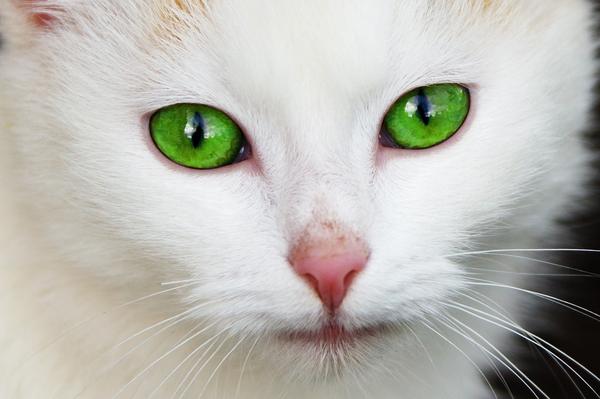
Looking for answers why your cat won't leave your side after giving birth?
Can't blame her for wanting some extra TLC, can we? 😊
Let's dive in and unravel the mysteries together.
Ready?
Let's get started.
Need for Protection and Security
Cats are naturally protective, especially when it comes to their kittens.
They rely on you for security and protection after giving birth.
So, they might get clingy and crave extra love and attention from you.
You have to closely watch their behavior and give them alone time if necessary.
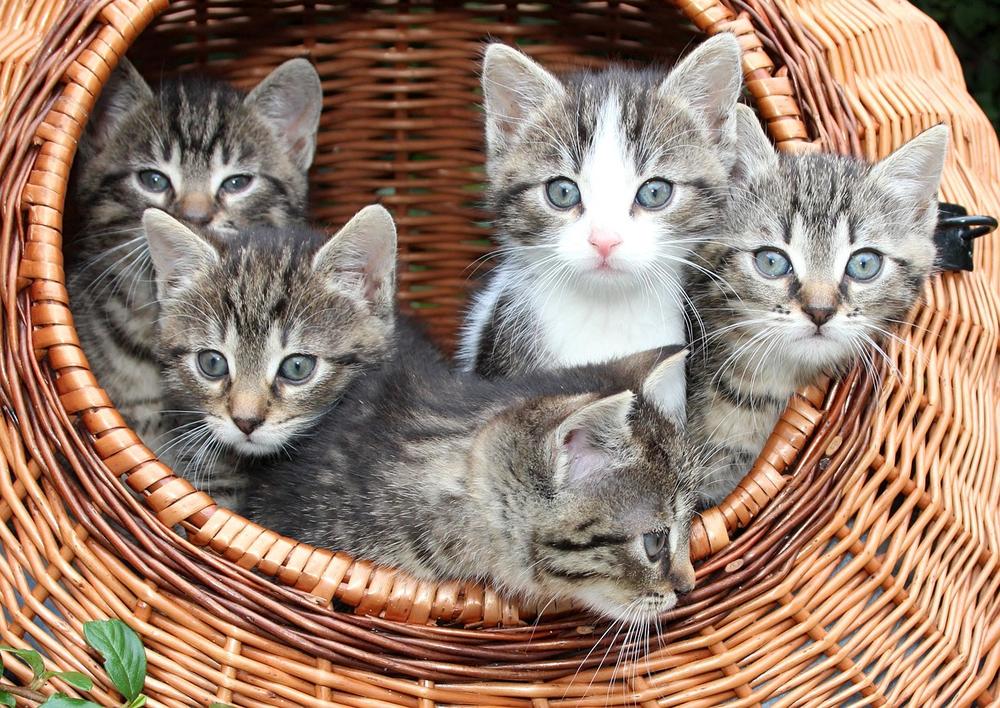
Creating a safe space for them to give birth is crucial for their safety and happiness.
Furthermore, being prepared for signs of labor and understanding the birthing process can help you effectively assist your cat.
Here are some key things to remember:
- Cats will instinctively protect their kittens.
- After giving birth, cats seek security from their owners.
- Clinginess and seeking extra attention are normal during this time.
- Keep a close eye on their behavior and give them alone time if needed.
- Prepare a safe area for your cat to give birth and raise her kittens.
- Stay alert for signs of labor and be there to support your cat.
Ensuring the safety and safeguarding of your feline and her valuable offspring is possible by adhering to these suggestions. 😺
Main points I'll expand upon further down this article:
- Cats can exhibit clingy behavior after giving birth due to hormonal changes.
- Mother cats rely on humans for support and guidance in kitten rearing.
- Weaning should be a gradual process between 6 and 10 weeks of age.
- Changes in routine or introducing a new family member can cause clingy behavior.
- Engaging in physical activities can foster a strong bond with your cat.
- Maternal behavior problems should be addressed and supported.
- Consider getting another pet to redirect the cat's attachment.
- Physical discomfort can cause clinginess in nursing cats.
- Seek immediate veterinary attention if clinginess is suspected to be health-related.
- Rewarding desirable behavior is more effective than punishment in reducing clinginess.
But why exactly do cats become more dependent after giving birth?
Well, let me delve into the fascinating reasons behind this behavior and shed some light on the hormonal changes, instinctual behaviors, and stressful situations that contribute to their increased dependency.
Trust me, understanding these factors will help you better support and care for your feline companion during this precious time.
So, let's dive right in!
Hormonal Shifts and Increased Dependency
During and after pregnancy, cats can become more dependent on you due to hormonal changes, instinctual behaviors, and stressful situations.
These shifts in hormones can make your cat clingy, constantly seeking attention and care.
It’s all because the mother cat needs comfort and reassurance during this vulnerable time, creating an increased need for support.
So, don't be surprised if your usually independent feline friend suddenly becomes a velcro kitty, following you around and craving affection.
Just make sure that you provide the extra love and care that they need while going through these transformative moments in their lives.
The Importance of Maternal Bonding With Kittens
Establishing a connection with her kittens is crucial for a mother cat, so she becomes clingy and stays close to ensure their safety and development.
Her desire to bond ensures that she can protect and nurture her offspring.
And you know what?
Mother cats trust humans for help in raising their kittens!
So, be ready to offer support and guidance throughout the process.
Around 6 to 10 weeks of age, weaning occurs, allowing them to slowly transition to solid food.
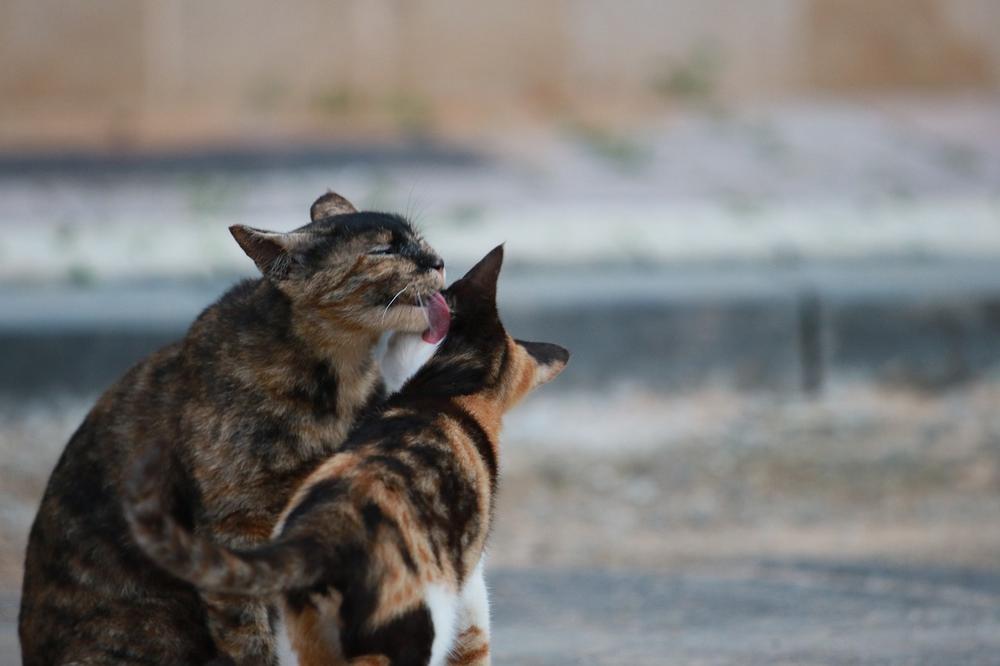
When kittens start eating solid food at about three to four weeks old, it's a big milestone.
Now, here are some practical tips to build a strong bond:
- Engage in activities together, like training sessions or yoga, to connect and stay active.
- Deal with any maternal behavior issues promptly, providing the necessary support and assistance.
- If bonding becomes tough, consider getting another pet to redirect the cat's attachment and provide new opportunities for connection.
The loyalty and interest displayed by cats after giving birth show their desire for strong, long-lasting relationships.
While most cat litters usually have around four kittens, certain breeds may often have larger litters.
But what if your cat's clinginess goes beyond just bonding with her kittens?
Well, let me tell you, postpartum recovery can bring about some challenging times for new mothers!
The physical discomfort they experience can be overwhelming.
So, how can you provide comfort and support during this period?
Let's dive into it together!
Managing Physical Discomfort During Postpartum Recovery
Recovering from giving birth can be tough on cat mothers ☺.
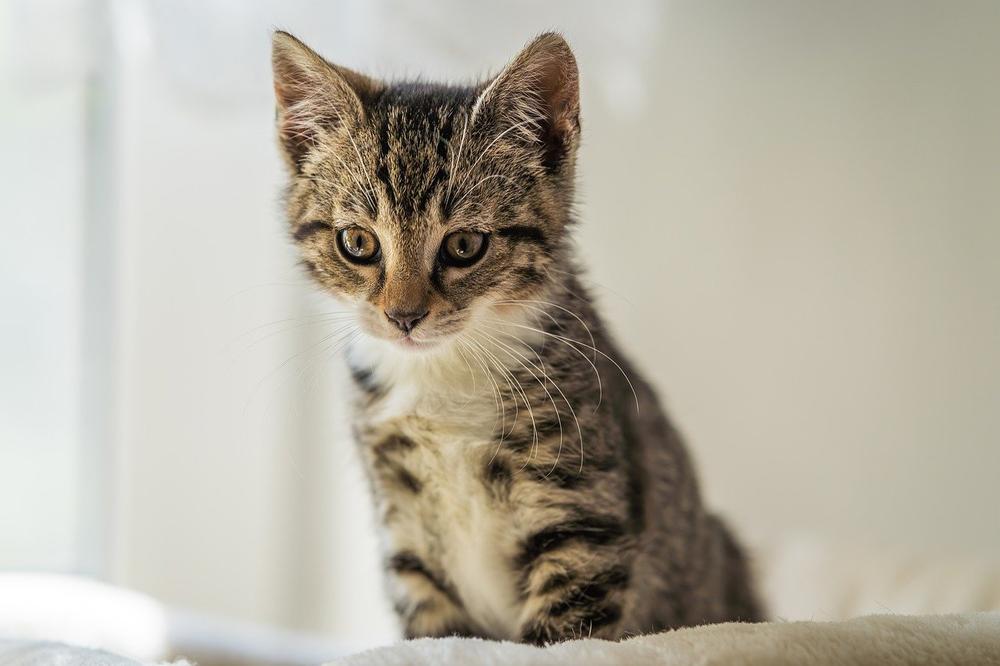
It causes discomfort, like soreness, fatigue, and pain.
That's where you come in—you need to help them out during this time.
Here's how you can provide comfort and manage their physical discomfort:
- Give gentle massages: Cats, like humans, find soothing massages beneficial. Take a moment each day to gently rub their back and legs—it helps relieve muscle tension.
- Apply warm compresses: If your cat has sore spots, using a warm compress can alleviate their pain and stiffness.
- Ensure they have enough rest: After giving birth and looking after their kittens, cat mothers may feel exhausted. Create a quiet and comfy space where they can relax undisturbed.
- Help with grooming: During this period, some cats might struggle to groom themselves properly. Aid them by gently brushing their fur and keeping their coats clean.
- Serve nutritious meals: A good diet is crucial for their recovery. Offer them high-quality cat food that fulfills their nutritional needs.
- Stay alert for signs of distress: If your cat appears excessively uncomfortable or shows signs of illness, it's vital to seek veterinary attention.
Giving your cat extra care and attention during this vulnerable period will go a long way in helping them recover quickly and comfortably.
Understanding and Addressing Postpartum Anxiety in Mother Cats
To understand and address postpartum anxiety in mother cats, take note of these 10 helpful tips:
- Be patient and understanding with your cat.
- Provide a safe and comfortable environment for her and the kittens.
- Offer reassurance and gentle affection regularly.
- Keep a consistent routine to help reduce stress.
- Address separation anxiety with gradual departures and arrivals.
- Use interactive toys and playtime to keep her mentally stimulated.
- Consider using pheromone diffusers or sprays to promote relaxation.
- Create a designated space for privacy and quiet time.
- Seek advice from a veterinarian or animal behaviorist if the anxiety persists.
- Take care of yourself too, as a calm and balanced owner will benefit your cat.
Addressing postpartum anxiety in mother cats requires patience, understanding, and practical solutions.
And speaking of postpartum anxiety in mother cats, you might be wondering why your cat is meowing and purring excessively after giving birth.
If you're curious to know more about this behavior and whether it's normal, I encourage you to check out my article, Cat Meowing Purring After Giving Birth.
In it, you'll find helpful insights and tips to understand your cat's communication postpartum.
Understanding their needs is essential for creating a serene environment for both mom and kittens.
So dive into my guide and uncover the secrets behind their vocalizations.
Meeting Emotional Needs Through Attention and Affection
Cats can be really clingy, especially after having kittens.
But why?
- They want your attention: Clinginess might be because they crave attention and affection from you.
- Separate their eating area: To stop them from following you everywhere, set up a separate spot for them to eat. This sets boundaries and reduces clinginess.
- Stick to a routine: Cats thrive on routines. Having a consistent schedule for feeding, playing, and cuddling can help lessen their clinginess.
- Don't give in to unwanted behavior: Instead of punishing clingy behavior, ignore it. This shows your cat that being clingy won't get them attention and encourages more independent behavior.
- Get them moving and keep them clean: Making sure your cat gets enough exercise and regular baths helps fulfill their physical and emotional needs, which reduces clinginess.
- Do activities that bond you both: Cuddling, grooming, and brushing their fur not only fulfills their need for attention but also strengthens the bond between you and your cat.
- Keep them mentally stimulated: Preventing boredom is important to avoid clinginess. Play games, use toys, create an obstacle course, and provide mental stimulation to keep them entertained.
- Reward good behavior: Give treats or praise when your cat behaves well. This positive reinforcement encourages independence and reduces clinginess.
- Don't neglect giving them attention: Neglecting your cat's need for attention may make them even clingier as they try to seek your company.
Understanding and meeting your cat's emotional needs is vital for their all in all happiness.
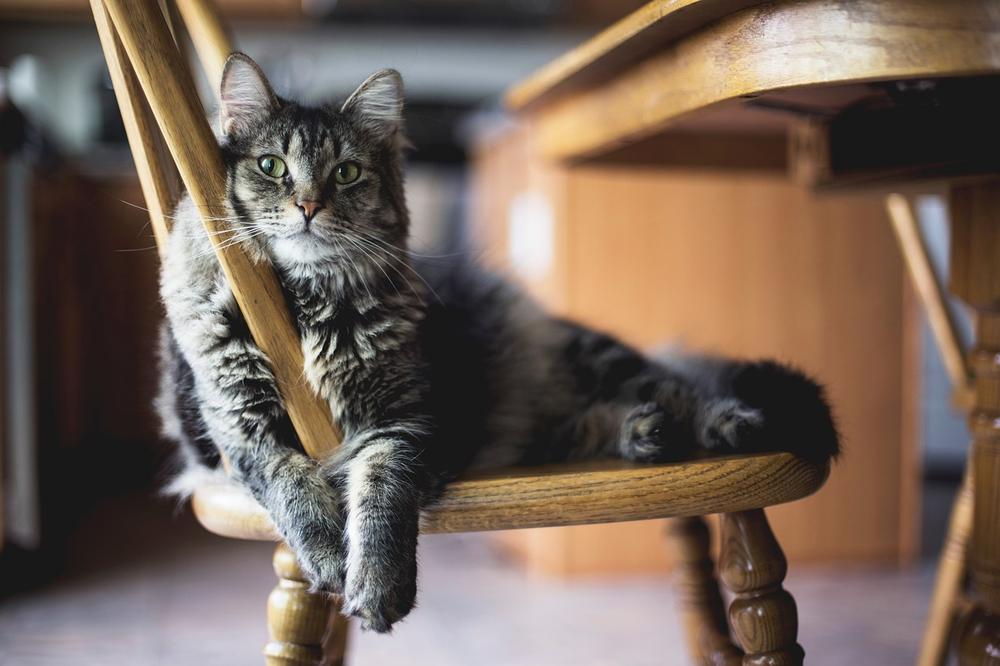
But why are cats clingy after giving birth?
It turns out, there can be various underlying reasons for this behavior.
Understanding the potential causes will help you provide the right support and care for your furry friend.
Let's explore them further in this section...
Understanding the Causes and Consequences of Stress and Anxiety in Mother Cats
Mother cats can become clingy and seek constant attention due to stress and anxiety triggered by factors like loud noises or changes in routine. Separation anxiety is also common, leading to excessive dependence on owners. Understanding these causes is crucial for creating a secure and tranquil environment for your cat's well-being.
Cats can be quite affectionate, especially after they have given birth. They express a desire for security and comfort from their owners as a response to stress and anxiety triggered by different factors like loud noises, disruptions in routine, or moving to a new home.
This need for constant attention is particularly worrisome in young cats with little previous experience.
Instances such as moving residences or alterations in daily schedule can intensify the clingy behavior since cats rely heavily on their owners for support.
Separation anxiety is another common problem that prompts excessive dependence and attachment to owners, especially when they are left alone for extended periods of time.
When a mother cat clings to you, it is her way of seeking solace and minimizing feelings of anxiety.
You must recognize that these behaviors stem from stress, separation anxiety, or occasionally, disorders related to nervousness.
To alleviate their clinginess, you need to create a tranquil and secure environment for your cat.
Setting up hiding spots and providing toys that can distract and alleviate anxiety can be helpful.
Moreover, engaging in regular playtime sessions and offering one-on-one attention can provide reassurance and minimize stress levels.
Ensuring the all in all well-being of your cat should be a top priority.
By comprehending the causes and ramifications of stress and anxiety, you can guarantee a happy and healthy life for your beloved feline companion.
Addressing the Impact of Isolation and Socialization on Mother Cats
Isolation and lack of socialization can have a significant impact on mother cats.
Here are some key points to consider:
- Isolation can lead to increased anxiety and fearfulness in cats.
- As a result, they may become clingy towards their owners, seeking constant attention and reassurance.
- To address this issue, providing mental stimulation is crucial. Engaging toys can help reduce boredom-related clinginess.
- Lack of socialization with other cats can also contribute to their anxiety and fear. Taking short walks outside with the cat offers exercise and opportunities for socialization.
- It's important to note that the reasons for clinginess in cats vary. Factors such as lack of socialization, emotional trauma, or feeling abandoned can all play a role.
- Pregnant cats may display unpredictable behaviors, which can be attributed to hormonal changes and nesting instincts.
- Providing a safe and secure environment can help alleviate stress and support mother cats during this period.
- Consulting with a veterinarian or animal behaviorist can provide additional guidance and assistance.
Understanding and addressing isolation and socialization issues is essential for the well-being of mother cats and their kittens.
You can make a difference by taking appropriate steps and providing them with the care they need.
And that wraps up today's article.
If you wish to read more of my useful articles, I recommend you check out some of these: Do Feral Cats Purr, Why Does My Cat Like Her Nose Rubbed, Do Cats Run Away to Die, and Are Cats Protective of Their Kittens
Talk soon,
-Sarah Davis